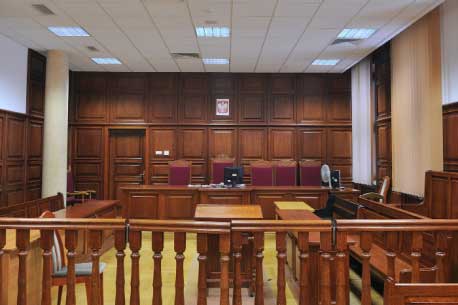After the court adjudicating in the case passes the final and binding sentence - if the defendant is sentenced to a punishment specified in the Penal Code, this penalty must be correctly executed. Therefore, immediately after the sentence becomes enforceable, the enforcement proceedings are instituted.
The rules of penalty enforcement are specified especially in the Executive Penal Code. Owing to the human rights catalogue developed in the western legal culture, penalties must be executed in a humanitarian way, with respect for human dignity of the convict. Torture or inhumane and humiliating treatment are prohibited (of course, it pertains also to enforcement of punitive, precautionary and preventive measures).
The Executive Penal Code regulates in detail the conditions of serving or enforcing penalties: a fine, restriction of liberty, imprisonment - including probation or electronic monitoring system. The convict retains his or her civic rights and freedoms, and their limitation can result solely from a legal regulation (e.g. when deprivation of public rights has been validly adjudicated).
The convict is entitled to take a legal action if his or her rights have been infringed. In particular, the convict can file a petition to institute proceedings before the court and can participate in them as a party. In cases specified in the statutes, the convict can also lodge a complaint against decisions issued in the enforcement proceedings. Certainly, the convict is entitled to be assisted by an attorney also during the enforcement proceedings.
Article 6. of the Executive Penal Code
§ 1. The convict can file a petition to institute proceedings before the court and can participate in them as a party, and (in cases specified by the statutes) the convict can lodge complaints against decisions issued in the enforcement proceedings.
§ 2. The convict can file motions, complaints and requests to the authorities executing the judgement. When filing a motion, complaint or request, the convict is obliged to justify claims contained therein to an extent necessary to examine the case, and in particular to enclose relevant documents.
Article 8. of the Executive Penal Code
§ 1. During the enforcement proceedings the convict can be assisted by an attorney appointed for these proceedings.
§ 2. In the proceedings before the court the convict must have an attorney if:
- the convict is deaf, mute or blind;
- there is a well-founded doubt concerning the convict's sanity;
- the convict is under 18;
- (abrogated);
- the court deems it necessary due to the circumstances hampering defence.
The proceedings are discontinued especially due to completion of the sentence or the convict's death
[Legal status as at July 2015]



